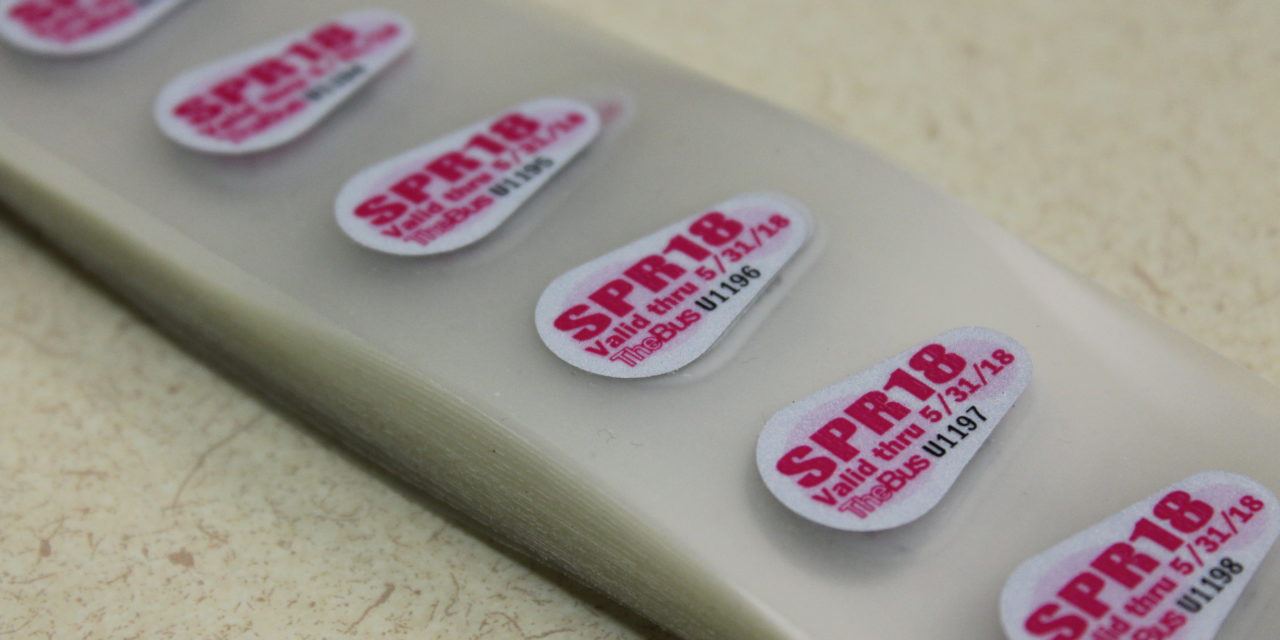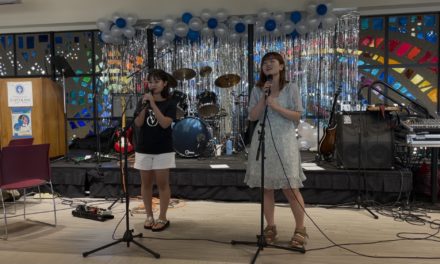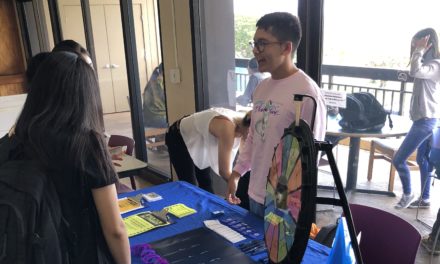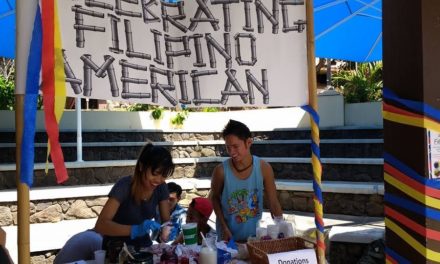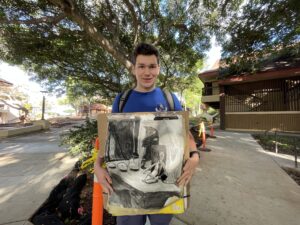By Lexus Yamashiro | Staff Writer
After the results of an annual survey that was sent out by KCC’s Student Congress in Spring 2017 indicated that transportation and technology were the biggest concerns amongst students, Student Congress developed a proposal to push a mandatory $40 UPass and $5 technology fee per semester into effect.
KCC’s current UPass is an optional payment of $225 for an entire semester, which, compared to the purchase of a monthly bus pass of $70, saves students $55 a semester. Although this benefits students financially, fewer purchases of the UPass may occur due to concerns that the price of KCC’s pass may rise in relation to TheBus’s change in price for its monthly bus pass that resulted in an increase from $60 to $70 for adults in December 2017.
“Statistically, looking through the records, the amount of ridership is going down,” said Ismael Salameh, the president of Student Congress. “From 2015 or 2016, there was a 29 percent decrease in the amount of ridership [and] there was a correlation to the cost. So as the costs steadily went up, the number of people purchasing it went down.”
Originally, Student Congress’s plans were to address transportation needs for bus riders, bicyclists, and drivers by looking to decrease the optional UPass price, install improved bike racks with the addition of pumps and lockers, and consider parking permits. After being notified that the UH system is handling the issue of parking permits and that KCC would accommodate to bicyclists without the use of student fees, Student Congress decided to focus directly on the prices of the UPass.
By developing a proposal to apply a $40 semesterly UPass fee, Student Congress saw this as a way to address the financial burden that the current UPass price may have on students while providing another mode of transportation to those who drive, bike, skateboard, or walk to school.
To generate an idea of how these fees could affect students, Student Congress conducted an informal survey in Fall 2017 for two weeks asking those on campus if they would approve of these new fees being passed. As a result of 300 students who were asked, theoretically 92 percent of students would be for the $40 UPass fee and 90 percent of students would be for the $5 technology fee.
After several negotiations and proposals were presented to KCC’s administration and the Department of Transportation Services (DOTS), an agreement was reached that implementing a mandatory student fee of $40 per semester — for potentially all students, regardless of whether they ride the bus — toward the UPass would be feasible for KCC.
On Feb. 5, an email was sent out by Vice Chancellor for Student Affairs Brenda Ivelisse containing a link to Student Congress’s survey asking students if they would be for or against the approval of the UPass fee. The survey will be open until Feb. 16. Students can attend one of Student Congress’s public forums on Monday, Feb. 12, or Tuesday, Feb. 13, from 12 to 1 p.m. in ʻIliahi 123AB or submit written testimony to kapccsc@hawaii.edu if they have questions or concerns.
If the results of this survey indicate a majority of students in favor for the UPass fee, the Board of Regents (BOR) will approve for this fee to go in effect from Fall 2019 to Fall 2021. The decision to continue this after Fall 2021 will be decided after review upon how successful the fee was and if students utilized it.
First-year student Kitima Wongrak said that paying for a lower UPass would benefit her being that she rides the bus to school from downtown.
“I think it’s good for students that don’t have [good] income, and it’s good because [I] ride every day so [I won’t] have to pay a lot,” said Wongrak, 32, who has been riding the bus for about two years.
In contrast, first-year student Cheynne Diaz expressed that paying for this mandatory fee would be unfair toward students such as herself who drive to campus regularly.
“I don’t think it’s fair for the ones that do drive to school and don’t take the bus to actually pay that,” Diaz said. “I think that it should just be an optional thing if you do want to pay that fee.”
Recognizing that some students take online classes, are dual-enrolled, or have another college other than KCC listed as their home campus, Student Congress is working on determining who would be required to pay the UPass fee.
“That was the biggest issue … that not everyone will be taking the bus,” Salameh said. “We understand that not all students may utilize the service, however, being that we are a community college, we are trying to work under Laulima, which is helping hands. Just because you may not utilize the service as much as you think you would, it is offered at a highly discounted rate. It is still an option for students to use … and what we are trying to do is promote alternative transportation. ”
Also aware that students may be concerned about having to pay this $40 fee per semester if it goes into effect, Salameh said that the mandatory UPass fee will be placed in its own category separate from Student Congress and can be covered by scholarships, grants, FAFSA, and the GI bill.
Like the UPass fee, the $5 technology fee will also go into effect in Fall 2019 if passed with a majority vote in favor by students. The monies generated by this fee will be used by the Center for Excellence in Learning, Teaching and Technology (CELTT) through approval of Student Congress to fix technical issues such as areas around campus that lack a consistent connection to Wi-Fi.
A survey addressing the proposal to have the technology fee implemented will be conducted in Student Congress’s upcoming annual survey in the middle of this semester.
As Student Congress works to get as many students votes on these two fees, it continues to encourage students to speak up and discuss what KCC can improve on and change in the future. Salameh welcomes anyone to email Student Congress concerns or questions at kapccsc@hawaii.edu or to stop by its office in ʻIliahi 129.

